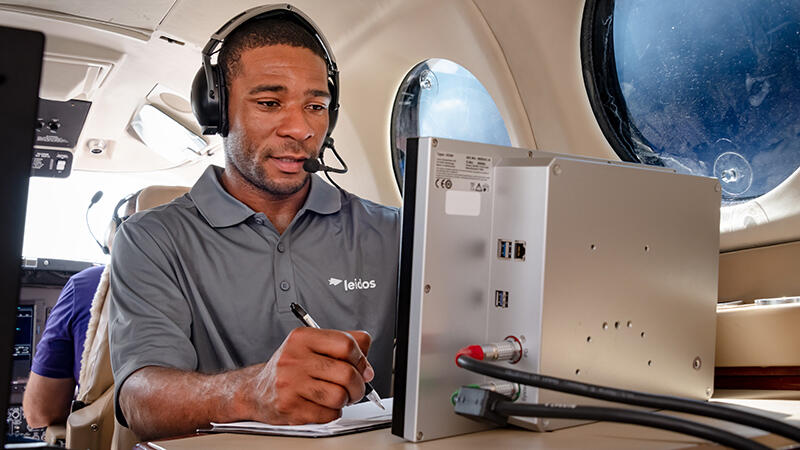How to land a cleared job - whether you have a clearance or not
Both government agencies and private companies with government contracts hire for cleared jobs, roles that require an active security clearance. In many cases, you're a more attractive job candidate if you have an active or current security clearance as part of your résumé.
There are three types of security clearances: confidential, secret, and top secret. There are also positions that require Sensitive Compartmented Information (SCI). This level of access is not a clearance; rather an access determination based on the need to access Intelligence information. SCI is affiliated with the Intelligence Community (IC), however, many federal agencies have SCI programs.
Having a clearance of any level, makes you more hirable as it's a simpler process to expand a clearance than obtain a new one. There are also three security clearance statuses: active, current, and expired.
An active clearance is for those who have a current clearance eligibility and a demonstrated need for access to classified information. In this status, the employee is briefed to the level of access eligibility and has a valid need for access to classified information at the appropriate level.
A security clearance is considered current, when the employee has a current eligibility for a clearance, however, there is no valid requirement for access. In this status, the active clearance has been debriefed, but can be re-briefed when there is a valid requirement.
A clearance is considered expired when the employee has been out of access for more than 24-months. In this status, a new investigation must be initiated, and the government must adjudicate a new clearance eligibility. This process may be very lengthy, often ranging from six months to a year or more.
Benefits of having and using security clearances
Having a security clearance is similar to having a special certification or degree on your résumé. It makes you more marketable, helping you stand out from other candidates and increasing your job prospects.
An active or current clearance may also increase your earning potential. People in cleared jobs, especially some of the more technical career fields with certification requirements, often receive higher salaries than counterparts who don't need security clearances for their roles.
If you do not have a security clearance, you cannot obtain one on your own; you must be sponsored by a government agency or a company with a government contract requiring classified performance.
Reciprocity challenges
There is long-standing policy outlining reciprocal acceptance of background investigations and national security adjudications for initial and continued access to classified information. The application of this reciprocity policy, however, varies between the multiple federal and IC agencies.
In November 2018, the Office of the Director of National Intelligence implemented Security Executive Agent Directive 7. This directive prescribed that agencies will accept background investigations completed by an authorized agency, if they meet all or part of the investigative standards for a national security background investigation.
The challenge with this new guidance is changing the culture across the federal government to accept determinations of other agencies. The current process for reciprocity can take several weeks to months from the time of requesting the “cross-over” of eligibility from the IC, or other federal agency such as the Department of State, Department of Justice, or Department of Defense. This could potentially impact your ability to obtain a position with a company that has a pressing need for a cleared employee in days, versus months.
How to land a cleared job without an active clearance
If you're interested in a defense or intelligence job that requires a security clearance, but you don't have one, there's good news. It is possible to get hired without a clearance, provided the company is able and willing to sponsor you. There may be a contingent offer that is made, while you go through the initial clearance process. This means the start of employment may be contingent upon obtaining at least an interim clearance eligibility.
Of course, your chances of being hired increase if you have in-demand skills. Software developers, engineers, and those with proficiency in foreign languages, for example, are highly sought after and, therefore, are more likely to get hired for cleared jobs despite not having an active clearance. There are measures you can take to better your odds no matter what your skill set is.
"Understand the procedures," advises Mike Hensley, Leidos Security Service Center Manager. "Know the security clearance process, and the potential restrictions hiring managers may have with candidates who don’t have a clearance."
As most cleared positions are direct work on a contract, many hiring managers don’t have a capacity to place a new hire on “overhead” while waiting for the clearance process.
Hensley notes that even simply stating on your résumé that you're willing to participate in a government clearance investigation could go a long way. Gather the information you'll need for the security questionnaire (SF 86) ahead of your job interview and mention that you've taken the initiative on this step.
Also, be sure you don't underestimate the value of networking. "Research which contracting companies provide paths for sponsorship," suggests Alex Verhulst, Talent Acquisition Military Program Lead at Leidos. "Then either leverage your own network or use LinkedIn to connect with people who can give you more information on how to get a job there."
And what will you do in the meantime, prior to obtaining an active clearance? "Some programs have the ability for employees to perform unclassified work that still supports the contract," explains Hensley.
"Sometimes, if the contract allows, an interim clearance can be obtained, which permits people to work at the necessary level."
Leidos supports contracts from multiple government agencies and is continuously hiring for roles with security clearances. Almost 80 percent of our current job openings require some level of clearance. That's why we have an entire service center around processing and maintaining security clearances for employees.
Leidos also takes extraordinary measures to assist employees with finding new cleared positions when a contract expires. We have a redeployment list that all hiring managers across the company use to fill new and current, but vacant positions.




